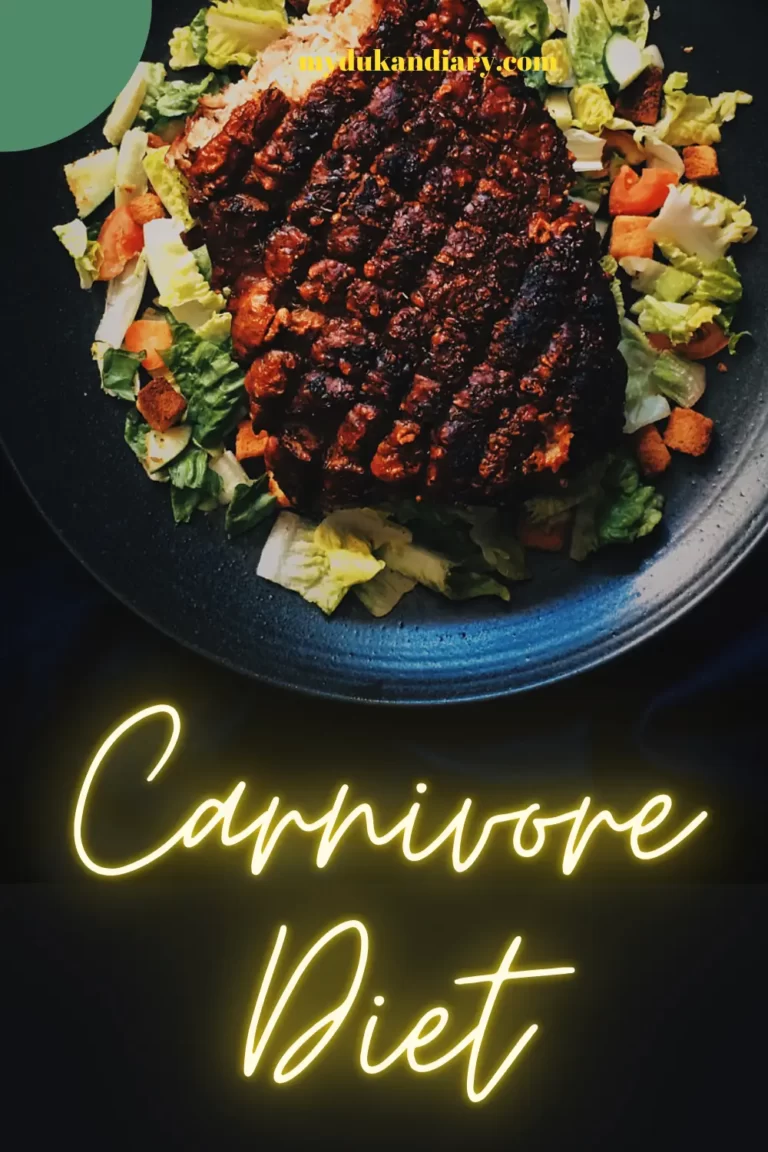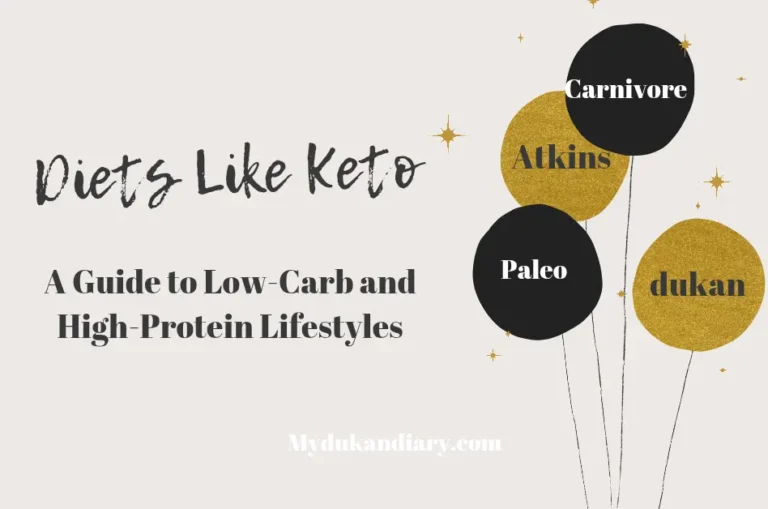What Can You Eat On A Ketogenic Diet? Learn The Secrets To Burn Fat
[ad_1]
 What Can You Eat On A Ketogenic Diet?
What Can You Eat On A Ketogenic Diet?
A ketogenic diet is basically a diet which converts your body from burning sugar to burning fat. Around 99% of the wold’s population have a diet which cause their body to burn sugar. As a result, carbohydrates are their primary fuel source used after digesting carbs. This process makes people gain weight, however a diet of fat and ketones will cause weight loss. As you ask what can you eat on a ketogenic diet, first of all eat up to 30 to 50 grams of carbs per day. Next, let us discover more about what you can have on your plate and how the ketogenic diet affects your health.
The Importance Of Sugar Precaution On The Ketogenic Diet
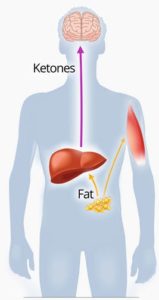 Keto shifts your body from a sugar burner to a fat burner by eliminating the dietary sugar derived from carbohydrates. The first obvious reduction you should make from your current diet is sugar and sugary foods. Although sugar is a definite target for deletion, the ketogenic diet focuses upon the limitation of carbohydrates. We need to watch out for sugar in a number of different types of foods and nutrients. Even a white potato which is carb-heavy may not taste sweet to your tongue like sugar. But once it hits your bloodstream after digestion, those carbs add the simple sugar known as glucose to your body. The truth is, our body can only store so much glucose before it dumps it elsewhere in our system. Excess glucose becomes what is known as the fat which accumulates in our stomach region, love handles, etc.
Keto shifts your body from a sugar burner to a fat burner by eliminating the dietary sugar derived from carbohydrates. The first obvious reduction you should make from your current diet is sugar and sugary foods. Although sugar is a definite target for deletion, the ketogenic diet focuses upon the limitation of carbohydrates. We need to watch out for sugar in a number of different types of foods and nutrients. Even a white potato which is carb-heavy may not taste sweet to your tongue like sugar. But once it hits your bloodstream after digestion, those carbs add the simple sugar known as glucose to your body. The truth is, our body can only store so much glucose before it dumps it elsewhere in our system. Excess glucose becomes what is known as the fat which accumulates in our stomach region, love handles, etc.
Protein And It’s Place In Keto
One source of carbohydrates which some people overlook in their diet is protein. Overconsumption of protein according to the tolerance level of your body will result in weight gain. Because our body converts excess protein into sugar, we must moderate the amount of protein we eat. Moderation of our protein intake is part of how to eat ketogenic and lose weight. First of all, identify your own tolerance of daily protein and use as a guide to maintain an optimal intake of the nutrient. Second, choose your protein from foods such as organic cage-free eggs and grass-fed meats. Finally, create meals in variety that are delicious and maintain your interest in the diet. For instance, a 5 ounce steak and a few eggs can provide an ideal amount of daily protein for some people.
Caloric Intake On The Ketogenic Diet
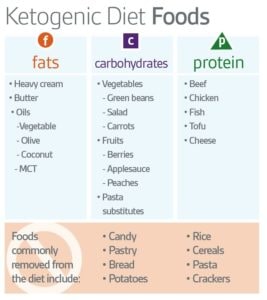 Calories are another important consideration for what can you eat on a ketogenic diet. Energy derived from the calories in the food we consume help our body to remain functional. Hence, we must eat enough calories in order to meet our daily nutritional requirements. Counting calories is a burden for many people who are on other diets. But as a ketogenic dieter, you don’t have to worry nearly as much about calorie counting. Most people on a low-carb diet remain satisfied by eating a daily amount of 1500-1700 kcals in calories.
Calories are another important consideration for what can you eat on a ketogenic diet. Energy derived from the calories in the food we consume help our body to remain functional. Hence, we must eat enough calories in order to meet our daily nutritional requirements. Counting calories is a burden for many people who are on other diets. But as a ketogenic dieter, you don’t have to worry nearly as much about calorie counting. Most people on a low-carb diet remain satisfied by eating a daily amount of 1500-1700 kcals in calories.
Fats, The Good & The Bad
Fat is not bad, in fact many good healthy fats exist in whole foods such as nuts, seeds and olive oil. Healthy fats are an integral part of the ketogenic diet and are available as spreads, snacks and toppings. Misconceptions in regards to eating fat are that a high amount of it is unhealthy and causes weight gain. While both statements are in a sense true, the fat which we consume is not the direct cause of the fat which appears on our body. Rather, the sugar from each nutrient we consume is what eventually becomes the fat on our body.
Balance Your Nutrients Wisely
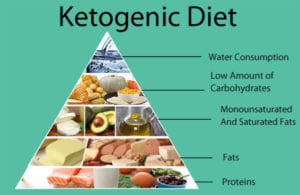 Digestion causes the sugars we eat to absorb into the bloodstream and the excess amount transfer into our fat cells. High carbohydrate and high protein eating will result in excess body fat, because there is sugar content in these nutrients. So excessive eating of any nutrient is unhealthy and causes weight gain. But a healthy diet consists of a balance of protein, carbohydrates and fats according to the tolerance levels of your body.
Digestion causes the sugars we eat to absorb into the bloodstream and the excess amount transfer into our fat cells. High carbohydrate and high protein eating will result in excess body fat, because there is sugar content in these nutrients. So excessive eating of any nutrient is unhealthy and causes weight gain. But a healthy diet consists of a balance of protein, carbohydrates and fats according to the tolerance levels of your body.
Just about everyone can accomplish a ketogenic diet with enough persistence and effort. In addition, we can moderate a number of bodily conditions naturally with keto. Insulin resistance, elevated blood sugar, inflammation, obesity, type-2 diabetes are some health conditions that keto can help to stabilize. Each of these unhealthy conditions will reduce and normalize for the victim who follows a healthy ketogenic diet. Low-carb, high-fat and moderate protein whole foods provide the life-changing health benefits of this diet.

[ad_2]
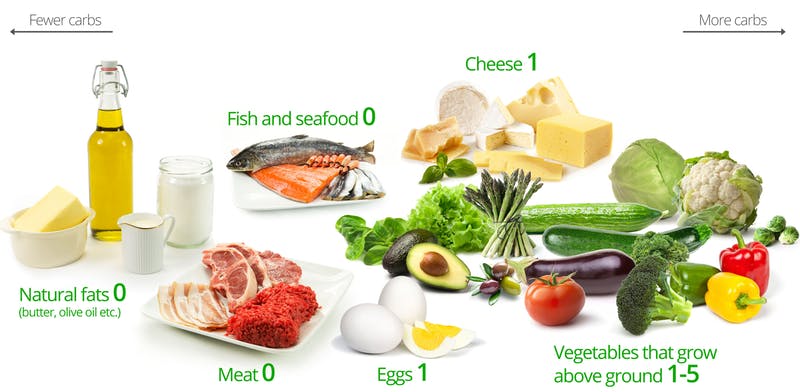
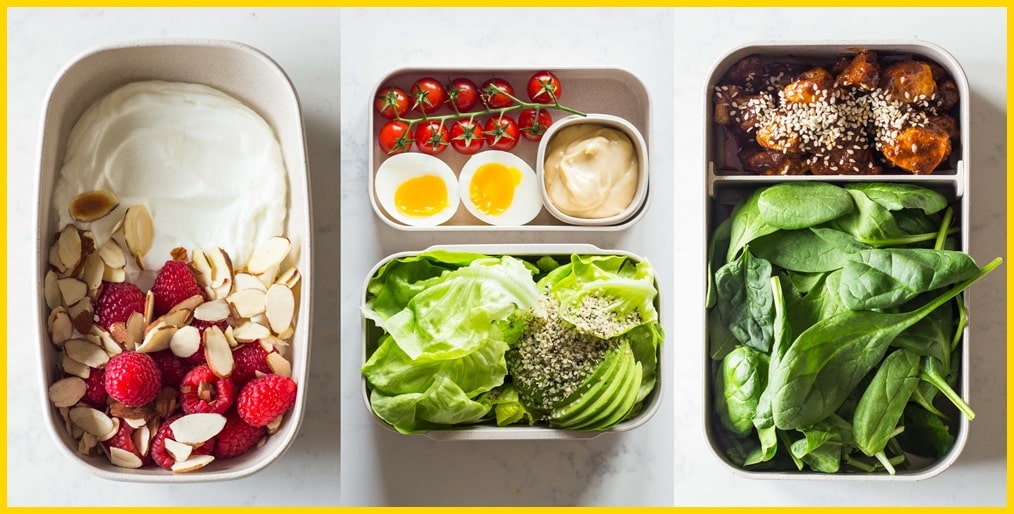 What Can You Eat On A Ketogenic Diet?
What Can You Eat On A Ketogenic Diet?